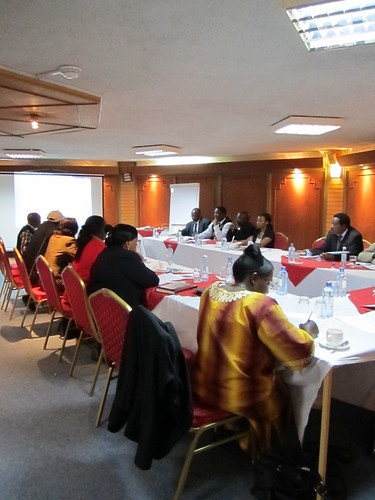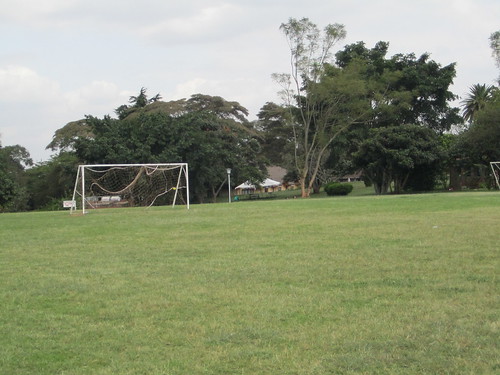I am getting settled into Hakijamii. The staff is great, and I am looking forward to sharing their work. Nairobi is…well, busy. I’m working on getting comfortable with the route to work, and then I’ll start exploring more. City Park, which I pass by on my way in to work, is teeming with monkeys. That will definitely be one of my stops.
In the meantime, I am trying to get acquainted with the status of economic, social, and cultural (ESC) rights here. These include right to adequate housing, right to water, sanitation, education, etc.; Hakijamii works extensively in all of these areas. Housing rights have been accented, I think mainly because of the prevalence of the forced evictions. In addition, the constitution that passed last August guarantees a lot of these rights, which seems great…but while it is a step in the right direction, policing and reconciling the current laws with the new constitution is an entirely different beast.
Hakijamii recently published an annual report evaluating the status of housing rights in Kenya, and a local paper, the Standard, wrote an article on June 2nd about the discrepancies between the Constitution and standing laws.
Friday, I attended a meeting with the Executive Director, Odindo Opiata, regarding the Evictions and Resettlement Guidelines. The meeting consisted of a taskforce charged with redrafting and refining the guidelines and creating a legal framework for the evictions. The taskforce consists of people from Hakijamii, the Ministry of Lands, Ministry of Housing, Nairobi People Settlement Network (NPSN), Kenya Land Alliance, Muungano wa Wanavijiji, and Kenya National Commission on Human Rights (KNCHR).
Maybe I’ve been indoctrinated by law school, but this legal framework seems particularly important. I’ll concede that eminent domain can be a useful and necessary power when used properly, but it is so important that there is a procedure…accountability, consistency, guarantees of rights and compensation. There needs to be a system (besides arbitrary or bribe-based). And these people need to know that system. It was interesting to hear the different perspectives of the various rights-based organizations and government representatives, which can be seen as the opposite sides of the debate.
At the end of the meeting, one of the government representatives introduced himself to me with the customary greeting for a newcomer: “Karibu,” which means welcome. He asked what I was doing in Kenya, so I told him working with Hakijamii. At which point he welcomed me: “Karibu.” I was obviously nervous about this government employee (one of the “bad” guys!) talking to me, and responded, “Oh, I don’t think working with Hakijamii is terrible at all.” Silence on his part. I quickly realized my mistake and giggled awkwardly. Luckily, he thought my bad hearing was funny.
Point for the government. Time to learn some Swahili.
Lesson one: Karibu = welcome (not terrible)
Lesson two: Jambo = hi
Today, I spent more time with my host family before they go on leave. I played soccer with the 9 year-old of the family and toured the International School of Kenya.
We also went to the Soko Soko Market, which only happens once a year, to peruse the crafts. Roaming the outskirts of Nairobi has been great, but still a stark contrast to the work I will be doing. I’m looking forward to my first site visit.
**These aren’t really kangas…but the fabrics were beautiful, all the same!
Sunday will be spent lazily registering for classes (I meant it when I said law school never ends) and reading some material I picked up my first two days of work. Looking forward to learning more about Hakijamii this next week.
Posted By Kristen Maryn
Posted Jun 4th, 2011




